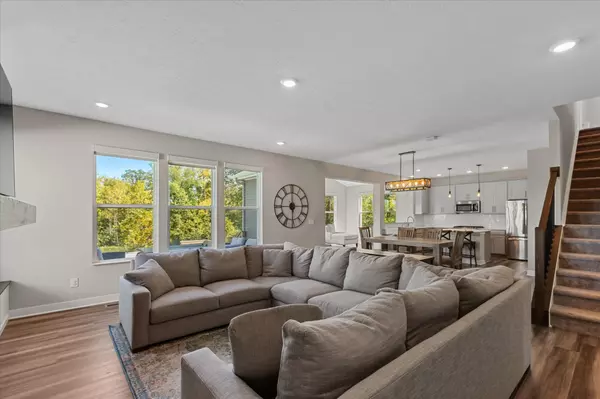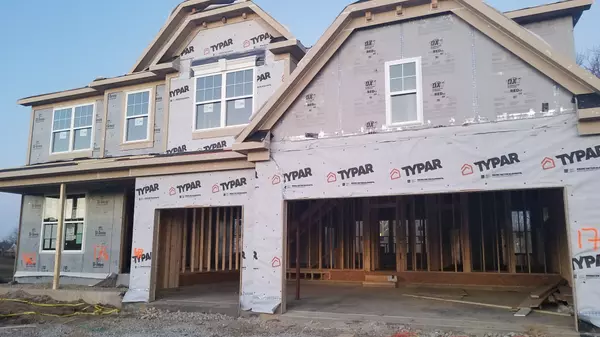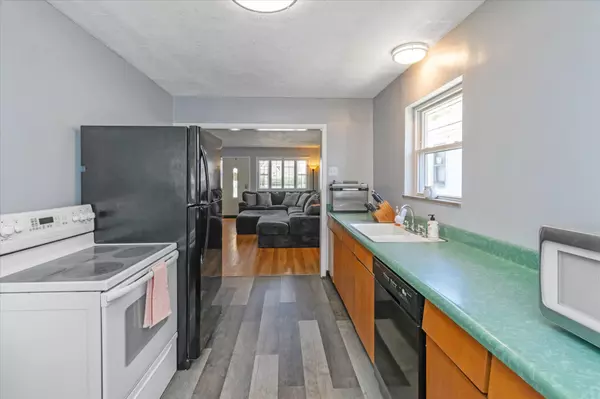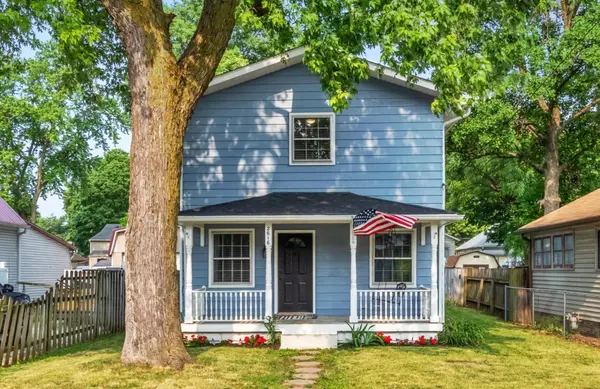Your Complete Guide to First-Time Homeownership

For first-time homebuyers, embarking on the journey to purchasing a home is a significant milestone, one that requires careful planning, knowledge, and preparation. This guide walks you through essential steps, from assessing your financial health to securing the right mortgage. Here’s how to navigate each stage of the homebuying process and start your journey toward homeownership with confidence.
Evaluating Your Financial Readiness for Homeownership
Starting with a strong financial foundation is essential. Assessing your current financial health provides a realistic sense of what you can afford, and setting up a solid budget ensures long-term stability. Knowing your financial status upfront not only boosts your confidence but also helps you make decisions aligned with your future goals and prevents costly mistakes later.
Assessing and Improving Your Credit Score
A good credit score can open doors to more favorable mortgage terms. For most lenders, a credit score of at least 620 is required for conventional loans, while higher scores can qualify for more favorable interest rates. Borrowers with scores of 740 or above often receive the most competitive rates, which can save thousands of dollars over the life of the loanA.
- Understanding the Impact of Your Score: Lenders view credit scores as a measure of risk. A higher score means lower risk, which translates to better loan terms for you.
- Steps to Improve Your Score: To enhance your credit score, pay down balances on credit cards to below 30% of your credit limit, resolve any inaccuracies on your report, and make sure all payments are timely.
- Avoiding New Credit Lines Before Applying: Avoid opening new lines of credit in the months leading up to your home purchase, as each inquiry can temporarily lower your score.
How to Monitor Your Credit Score
Regularly monitoring your credit score helps you stay aware of any issues that could impact your mortgage eligibility. Sites like AnnualCreditReport.com offer a full report annually, while many credit card providers now offer monthly score updates. Checking your score routinely keeps you informed and ready to address any concerns promptly.
Reducing Debt and Calculating Your Debt-to-Income Ratio
Your debt-to-income (DTI) ratio is another factor lenders examine closely. For most loan types, a DTI under 36% is ideal, with no more than 28% going toward housing costs. Reducing high-interest debt not only improves this ratio but also strengthens your mortgage application overallB. Working on this metric can enhance both your loan terms and your overall financial health.
Saving for a Down Payment and Other Costs
Setting up a dedicated savings plan for your down payment and understanding additional costs is essential. First-time buyers have options when it comes to down payments, from conventional loans to special programs designed for new buyers.
- Down Payment Options: While 20% is often recommended to avoid private mortgage insurance (PMI), there are options such as FHA loans (3.5% down) and VA loans for qualified buyers.
- Accounting for Closing Costs: In addition to the down payment, closing costs can range between 2-5% of the home’s purchase price, covering expenses like appraisals, attorney fees, and title insuranceC.
- Creating an Emergency Fund: Having an emergency fund for unexpected repairs or maintenance helps prevent financial strain once you’re a homeowner. Experts recommend setting aside at least 1-3% of the home’s value annually for such expenses.
Tip: Automate monthly transfers to a dedicated savings account to make reaching your down payment goal easier and more consistent.
Securing the Right Mortgage for Your Needs
Understanding mortgage options can help you choose the loan type that best suits your financial situation and homeownership goals. Researching different mortgage products empowers you to make informed decisions and ensures you're matched with a loan that aligns with your budget and lifestyle.
Types of Mortgages Available
Different loan options cater to various financial situations. Here’s a breakdown of popular mortgage types, each with unique advantages depending on your qualifications and needs.
- Conventional Loans: Typically require a higher credit score and a minimum 3% down payment, appealing to buyers with strong financial profiles.
- FHA Loans: Designed for buyers with lower credit scores, FHA loans require a 3.5% minimum down payment, backed by government insurance.
- VA and USDA Loans: Ideal for veterans and rural buyers, respectively, these loans often have no down payment requirement but require specific eligibility criteria.
Fixed-Rate Mortgages vs. Adjustable-Rate Mortgages (ARMs)
Fixed-Rate Mortgages: Offer stability with a consistent interest rate throughout the loan. This option suits buyers planning to stay in their home long-term, as it provides predictable paymentsD.
Adjustable-Rate Mortgages (ARMs): Start with a lower interest rate, which adjusts over time. ARMs can be beneficial for buyers planning to sell or refinance before the initial rate period ends, though they carry more uncertainty than fixed-rate loans.
Considering Loan Term Lengths
Loan terms commonly range from 15 to 30 years, with shorter terms resulting in higher monthly payments but substantial savings on interest over time. A 30-year loan offers lower monthly payments, but the additional interest can add up. Buyers should weigh their financial stability and long-term plans to determine the ideal loan term.
Building a Competitive Offer
Once you’ve found a home you love, crafting a strong offer is crucial to stand out in a competitive market. Your offer not only reflects your budget but also shows the seller you’re serious about the property.
Understanding Market Conditions
The housing market can vary widely, with some areas experiencing high competition, driving up offers, and others offering more flexibility. Understanding the market where you’re buying allows you to tailor your offer to be competitive without overextending.
Consider working with a real estate agent who has local expertise and can provide insights into recent sales, trends, and appropriate offer strategies for your chosen area.
Including Earnest Money
Earnest money, a deposit made to the seller, signals your commitment. Typically 1-3% of the purchase price, this deposit is applied to your closing costs if the deal proceeds. Sellers often view offers with higher earnest money as more credibleE.
Working with a Real Estate Agent
An experienced agent can help you make an informed offer by assessing comparable properties, understanding seller motivations, and managing negotiations on your behalf. An agent’s guidance can provide invaluable support, particularly for first-time buyers navigating complex offers and counteroffers.
Inspecting Your Future Home: What to Look For
After your offer is accepted, scheduling a home inspection is one of the most crucial steps before finalizing the deal. An inspection helps ensure the home is in good condition and free from hidden problems that could lead to expensive repairs down the road. It’s essential to understand what’s included in a standard inspection and how to address any issues that arise during the process.
The Importance of a Professional Home Inspection
A professional home inspection is designed to identify issues that might not be immediately visible during showings. These include structural concerns, plumbing problems, or electrical faults, which could affect your decision to move forward with the purchase. An inspector typically checks the roof, foundation, HVAC systems, and appliances, among other components of the home.
- Key Areas of Focus: Inspectors examine the home’s structure, plumbing, electrical systems, roof, foundation, and HVAC units to ensure everything is working properly.
- Negotiating Repairs: If an inspection uncovers issues, you can use the findings to negotiate repairs or a lower purchase price.
- Contingencies in the Contract: Many homebuyers include contingencies in their offer, such as the ability to cancel the deal if significant problems are found.
Finding a Qualified Home Inspector
To ensure a thorough inspection, hire a licensed home inspector with experience in the local real estate market. Your real estate agent can provide recommendations or you can consult professional associations like the American Society of Home Inspectors (ASHI). Check reviews, ask for references, and ensure the inspector is properly insured and licensed.
Post-Inspection Decisions
Once you receive the inspection report, you’ll need to evaluate the findings and decide how to move forward. If major issues are found, you can request that the seller make repairs, offer a price reduction, or, in extreme cases, back out of the deal. Minor issues may not require renegotiation, but it's always wise to consider the long-term cost of repairs before proceeding.
Closing the Deal: Finalizing Your Purchase
The closing process involves a series of steps that finalize your home purchase. This is where the details come together, and you officially become a homeowner. Here’s a breakdown of what happens during the closing and how to prepare for it.
Understanding Closing Costs
Closing costs are the fees associated with finalizing the purchase of a home. These costs typically range from 2% to 5% of the home’s purchase price and can include a variety of expenses. It's essential to understand these costs upfront to avoid surprises at the closing table.
- Common Closing Costs: These can include lender fees, title insurance, escrow fees, home inspections, and property taxes that have been prorated.
- Prepaid Items: Some costs, like property taxes or homeowners insurance, may need to be paid in advance at closing.
- Negotiating Closing Costs: In some cases, the seller may agree to cover some or all of the closing costs. This is something to negotiate as part of your offer.
Reviewing the Closing Disclosure
A few days before closing, you'll receive a Closing Disclosure, which outlines all the costs associated with your mortgage. It's important to review this document carefully to ensure it matches the terms you were quoted earlier and that there are no unexpected fees. If you have any questions or concerns, this is the time to ask your lender for clarification.
Preparing for the Final Walkthrough
Before the final signing, a final walkthrough of the home is typically required. This is your opportunity to ensure that the home is in the same condition as when you made your offer. Look for any changes or repairs that may have been agreed upon during negotiations and verify that the seller has cleared out all personal belongings.
Managing Your Finances as a Homeowner
Once you close on your home, you’re officially a homeowner. However, the financial responsibilities don’t end with the closing process. Maintaining your finances and staying on top of your mortgage payments are crucial for long-term success in homeownership.
Budgeting for Homeownership Costs
Owning a home comes with ongoing costs, some of which can be unpredictable. It’s essential to create a post-purchase budget that includes not only your mortgage payment but also property taxes, insurance, utilities, and regular maintenance expenses. Having a clear budget in place will help you manage your finances effectively and avoid financial strain.
- Mortgage Payment: Ensure your monthly mortgage payment is manageable within your budget. Consider the total cost of homeownership, including interest and principal payments.
- Property Taxes and Insurance: Factor in property taxes and homeowners insurance as part of your monthly expenses. These can change annually and impact your budget.
- Home Maintenance: Regular maintenance is necessary to keep your home in good condition. Set aside a percentage of your income for repairs and upkeep.
Building Equity Over Time
One of the most significant benefits of homeownership is building equity. As you make mortgage payments, you gradually increase your ownership stake in the property. Equity is the difference between the home’s current market value and the outstanding mortgage balance. Over time, as your home appreciates and your mortgage balance decreases, your equity grows, which can provide financial benefits down the line.
Understanding Homeowner's Insurance and Taxes
Homeowners insurance protects your property against unexpected damage, theft, or loss. Your lender may require you to have a policy in place to protect their investment. It’s essential to shop around for the best rates and coverage options. Additionally, property taxes are an ongoing expense that can fluctuate yearly based on local tax assessments. Be sure to budget for these costs to avoid surprises down the road.
Making Your First Home Your Own
After the closing process, the fun begins: making your house feel like a home. While homeownership comes with its share of responsibilities, it also offers a wealth of opportunities for personalization and improvement. Here’s how to begin turning your new house into a space that fits your style and needs.
Personalizing Your Space
When you purchase a home, you get the freedom to personalize every corner. Whether it’s updating the kitchen with modern appliances, creating a relaxing outdoor space, or painting the walls in colors that reflect your personality, the possibilities are endless. Personalizing your home not only enhances your living experience but can also increase the property’s value.
- Kitchen and Bathroom Updates: Upgrades to these key areas can make a significant difference in the overall appeal and functionality of your home.
- Landscaping and Curb Appeal: Simple landscaping changes can add value and create an inviting atmosphere.
- Interior Design: Adding personalized decor, furniture, and accessories can make a home feel unique and comfortable.
Maintaining Your Home Over Time
Owning a home means staying on top of routine maintenance. Regular upkeep not only keeps your home in good condition but also prevents costly repairs down the road. Tasks such as checking the roof, cleaning gutters, and servicing HVAC systems are essential for long-term homeownership success.
Increasing the Value of Your Home
Over time, you may decide to sell your home or refinance. To increase its value, focus on key improvements like kitchen remodels, bathroom updates, and energy-efficient upgrades. Additionally, staying on top of general maintenance, such as fresh paint and landscaping, can make your home more appealing to future buyers.
Categories
Recent Posts










GET MORE INFORMATION

